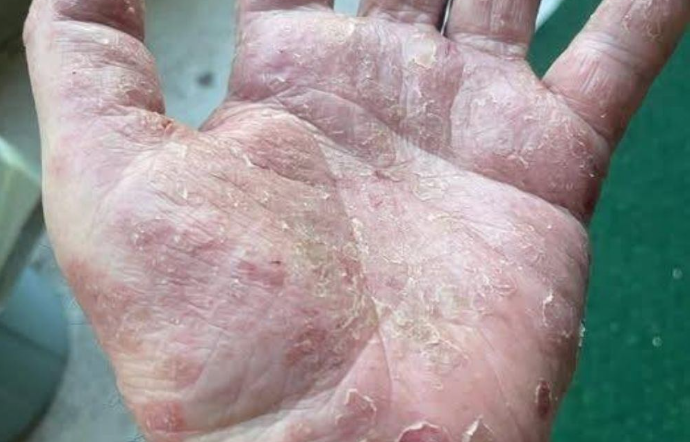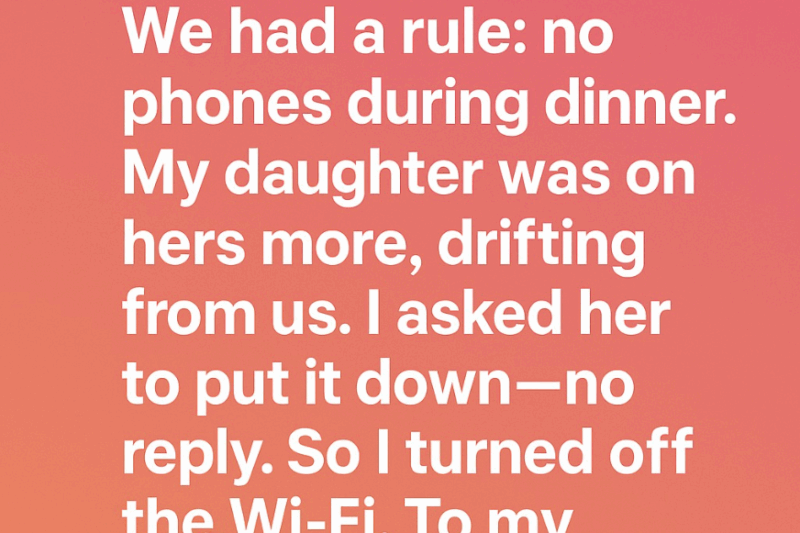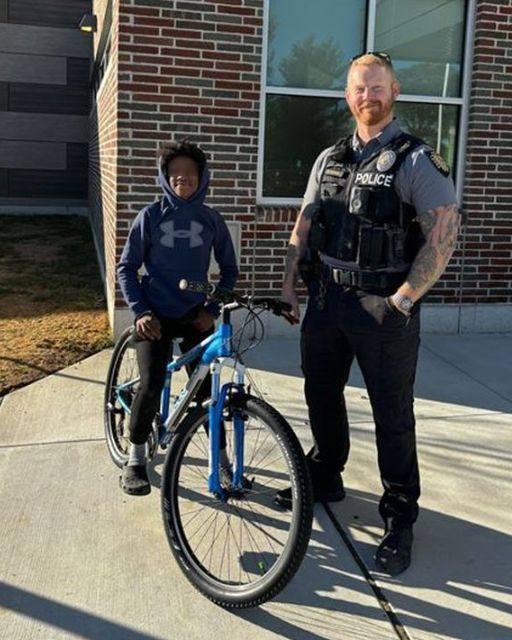They say the street you grow up on shapes the kind of adult you become. Ours was shaped like a question mark, curved at one end, always leaving you wondering what came next. I lived there for eleven years, long enough for it to feel like a chapter in a book I wasn’t sure how to end.
That summer, the sun felt too bright for how heavy everything had become.
We’d been living in Ridgewood Terrace for three years by then. Me, my daughters Amaya and Zari, and their Grandma, Denise. My husband, Marcus, had been gone for almost as long—caught up in something he thought he could handle, but couldn’t. It’s funny how fast a bad decision can unravel the whole fabric of a life.
Amaya was nine and sharp as a tack. Zari was six, soft and shy, the kind of kid who still asked before taking the last apple slice. They both knew things they shouldn’t have to know—like how to stay still when voices got loud, how to read the tension in a room like weather.
And they knew how to freeze when the police showed up.
It was that Thursday afternoon—warm, the air thick with cut grass and barbecue smoke—that it happened. We were doing sidewalk chalk just outside our building. Zari had drawn a lopsided sun; Amaya was working on a rainbow with real shading—she was getting good at that.
Then we heard the whirr of bike tires.
Two officers on bikes, a cruiser behind them, then the one with the dog. A German Shepherd with a long pink tongue and a serious expression.
Zari gripped my leg like she was trying to anchor herself to the earth. Amaya stepped in front of her, protective, silent. My heart lodged in my throat.
I didn’t even think. I reached for my phone.
Not because I wanted trouble. But because I knew how fast a sunny day could sour. I’d seen the videos, heard the stories. We all had. We taught our girls manners and math; the world taught them fear.
The officer with the dog stepped out. Broad-shouldered, a deep tan, sunglasses covering his eyes. “POLICE K9” in bold white letters across his chest.
I braced myself.
Then he did something unexpected. He smiled.
Slid his sunglasses off, knelt next to the dog.
“This is Jax,” he said, like he was introducing a friend from the neighborhood. “He’s got a better nose than anyone on this block. Wanna pet him?”
Zari didn’t move, just burrowed deeper into my side.
But Amaya narrowed her eyes. “Is he trained to bite people?”
The man’s smile faded a little, turned serious. “Only the bad guys. Never the good ones. Jax knows the difference.”
Zari whispered, barely audible, “How?”
The officer looked at her like she mattered. Like she wasn’t just a scared little Black girl in a neighborhood full of suspicion.
“Same way you do, kid. He watches how people treat each other.”
And just like that, something in her shifted. Zari let go of me, took two small steps forward, reached out and touched the dog’s fur. Gave him a piece of her popcorn.
She smiled. My God, she smiled.
When the officer stood up again, she tugged on his vest. “Can I wear your vest one day?”
He paused, thoughtful. “Only if you promise to be braver than Jax.”
I thought that was the end of it. A small moment in a long summer. But it wasn’t.
Two weeks later, I got a letter.
Not an email, not a text. A real letter. Thick paper, a gold seal. It was from the police department.
At first, I panicked. My mind went a hundred directions. Was it about Marcus? Something he did before going in? But no.
The letter was an invitation.
The officer, whose name I later learned was Greg Henson, had nominated Zari and Amaya for a community youth program. For kids with leadership potential. He called it “an act of faith.”
We went. The program was nothing like I expected. It wasn’t uniforms and drills. It was storytelling circles, therapy dogs, field trips to science museums and local farms. They brought in former inmates who talked about the path that led them behind bars and the harder road they took to stay out.
And one day, they brought in a woman named Rosa.
She had grown up just ten blocks from us. Same schools, same cracked sidewalks, same hard choices. She sat cross-legged in a folding chair and told the kids that she’d been afraid of police her whole life—until the day she became one. She was now a detective. Not undercover, not hard-edged. Just calm. Thoughtful.
“You can’t change a system from the outside if it’s armored from the inside,” she said. “But if you walk in with your truth, they can’t unsee it.”
Zari clung to every word. Amaya asked more questions than anyone else.
By fall, both girls had shifted. Not in a big, cinematic way. But in subtle ways—how they held their heads up when speaking, how they listened more carefully, how they started asking about history, law, justice.
But the real twist came when we went to the department’s year-end open house. They gave out certificates and medals. There were bouncy houses and barbecue ribs.
And there, in the middle of the lawn, was Jax.
Zari ran straight to him, fearless now. Amaya too. I was watching them when someone tapped my shoulder.
Officer Henson.
“Thought I’d find you here,” he said.
He had a folder in his hand.
“You ever hear of the Bridge Fellowship?” he asked.
I hadn’t.
“It’s a scholarship program,” he said. “Private. Low-key. Funded by a few retired judges and educators. They pick five kids a year. I want to nominate Amaya.”
I blinked. “She’s nine.”
“They start early,” he said. “Plant a seed. Let it grow.”
I didn’t know what to say.
He handed me the folder. “You don’t have to decide today. But just think about where she could be in ten years if someone believes in her now.”
I thought about that all night.
Thought about how, just weeks earlier, my daughters had hidden from men like him.
And now—one was petting a K9, the other being offered a future most kids in Ridgewood Terrace never even imagined.
It didn’t erase the fear, or the unfairness. It didn’t undo what the world had already taught them. But it added something new. A chapter we never expected.
Hope.
We filled out the forms that weekend.
A few months later, Amaya got in.
We celebrated with cupcakes and a walk under the stars.
Zari said she wanted to be a vet now, “for dogs like Jax.” Amaya said she wasn’t sure what she wanted to be yet.
“That’s okay,” I told her. “You’re already becoming it.”
Sometimes I think back to that day with the sidewalk chalk and wonder—what if Officer Henson hadn’t stopped? What if he hadn’t taken off his glasses? What if he hadn’t smiled?
It was a small thing. But it changed everything.
So if you’re reading this—maybe on your phone, maybe late at night—remember that you don’t always have to change the whole world. Just someone’s afternoon.
And if it works out, they might just change the world on their own.
If this story moved you, share it. Someone might need to know that one moment of kindness can bend an entire future.




